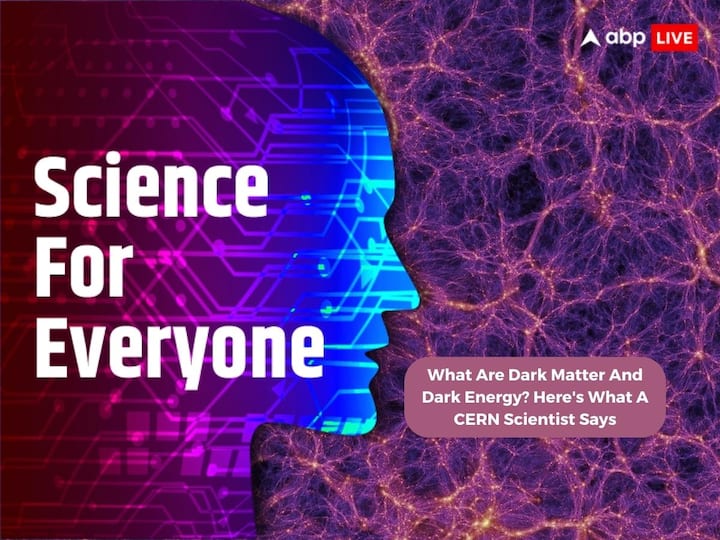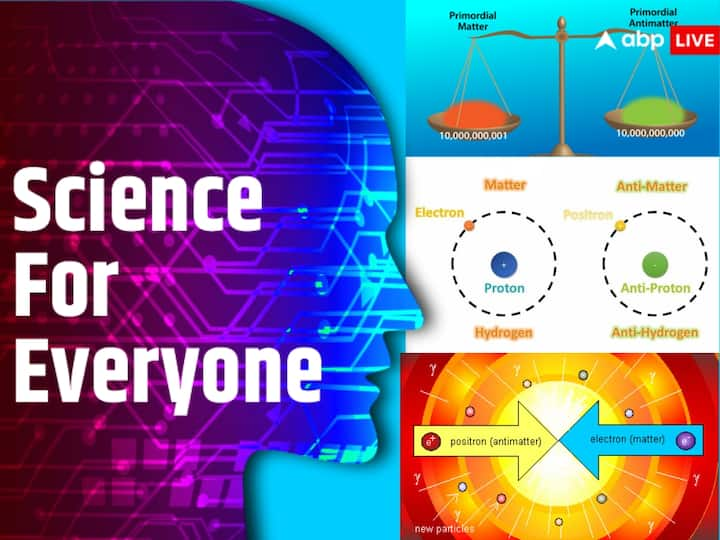What Are Dark Matter And Dark Energy? Here’s What A CERN Scientist Says
Welcome to “Science For Everyone”, where we explore fascinating scientific concepts that shape our understanding of the universe. In this article, we will delve into the mysteries of dark matter and dark energy, two enigmatic phenomena that continue to intrigue scientists and challenge our current understanding of the cosmos. Join us on this captivating journey as we uncover the insights shared by a CERN scientist about these unseen cosmic entities.
The Observable Universe and its Hidden Secrets

Before we dive into the depths of dark matter and dark energy, let’s take a moment to comprehend the sheer vastness of our universe. The observable universe, which encompasses everything we can see, touch, and interact with, constitutes merely five percent of the cosmos. The remaining 95 percent is composed of mysterious substances and forces that elude direct detection and observation.
Unveiling Dark Matter: The Invisible Mass

Dark matter, as the name suggests, is a form of matter that does not interact with light or any other electromagnetic radiation. It remains invisible and hidden from our conventional methods of detection. This begs the question: If we can’t see it, how do we know it exists?
The Gravitational Clues
Scientists have unearthed compelling evidence of dark matter’s existence through its gravitational effects on visible matter. Galactic rotation curves, for instance, reveal that galaxies rotate faster than expected based on the observable mass alone. This discrepancy points towards the presence of additional mass, which we identify as dark matter.
The Cosmic Web and Large-Scale Structure
Further insights are gained by observing the large-scale structure of the universe. Dark matter plays a crucial role in the formation of cosmic structures like galaxies and galaxy clusters. Its gravitational pull molds the distribution of visible matter, creating intricate cosmic web-like structures that are imprinted on the fabric of space-time.
Unraveling Dark Energy: The Enigmatic Force

If dark matter wasn’t perplexing enough, let’s add another layer of intrigue with dark energy. Dark energy is an elusive force that permeates all of space and acts as the driving factor behind the accelerated expansion of the universe.
Acceleration of Cosmic Expansion
Observations of distant supernovae and cosmic microwave background radiation have revealed that the universe is expanding at an accelerating rate. The only explanation for this phenomenon is the presence of dark energy, which counteracts the gravitational pull between matter and ensures the universe’s relentless expansion.
Quantum Insecurities and Vacuum Energy
The nature of dark energy remains shrouded in uncertainty. One prevailing hypothesis suggests that it arises from the inherent energy of the vacuum, governed by the principles of quantum mechanics. Virtual particles continuously pop in and out of existence, contributing to the overall energy density of space and fueling the expansion of the universe.
A CERN Scientist’s Perspective

A CERN scientist, at the forefront of cutting-edge research, sheds light on these puzzling cosmic phenomena. According to their research and insights:
The Quest for Detection
CERN scientists, along with collaborators from around the world, are actively engaged in experiments aimed at directly detecting dark matter particles. By utilizing powerful accelerators and sophisticated detectors, they seek to capture elusive particles that could provide definitive evidence of dark matter’s nature.
Unveiling the Nature of Dark Energy
Understanding the nature of dark energy is an ongoing challenge. CERN scientists are involved in projects and collaborations that strive to shed light on this enigmatic force. Through precise measurements and observations, they hope to gain a deeper understanding of dark energy and its implications for the cosmic landscape.
Concluding Thoughts
Dark matter and dark energy are captivating scientific mysteries that fuel the curiosity of researchers around the world. They challenge our understanding of the universe and hold the keys to unlocking profound insights about its composition and evolution. With the relentless pursuit of knowledge and the ingenuity of scientists at CERN and beyond, we inch closer to unraveling the secrets of these cosmic enigmas.
Frequently Asked Questions

| Question | Answer |
|---|---|
| Q1: Can dark matter and dark energy be harnessed for human use? | A1: At present, we do not have the technological means to harness dark matter or dark energy for practical purposes. Our current understanding is limited to their influence on cosmic structures and the expansion of the universe. |
| Q2: Are there any alternative theories proposed to explain dark matter and dark energy? | A2: Yes, various alternative theories have been put forward to explain these phenomena. Some suggest modifications to the laws of gravity, while others explore the existence of entirely new particles and fields. Scientists continue to explore these theories through experimentation and observation. |
| Q3: Can dark matter and dark energy be detected in a laboratory setting? | A3: Detecting dark matter and dark energy directly in a laboratory is a significant challenge. Scientists rely on sophisticated experiments conducted underground or in space to minimize interference from background radiation and particles. |
| Q4: How does the study of dark matter and dark energy impact our daily lives? | A4: While the direct impact of studying dark matter and dark energy on our daily lives may not be apparent, it expands our understanding of the universe and enriches our collective knowledge. Scientific breakthroughs in fundamental physics often pave the way for technological advancements in various fields. |
| Q5: Are there any potential future discoveries related to dark matter and dark energy? | A5: The exploration of dark matter and dark energy is an active field of research. As technology advances and our capabilities improve, we may witness groundbreaking discoveries that reshape our understanding of these cosmic phenomena. |

